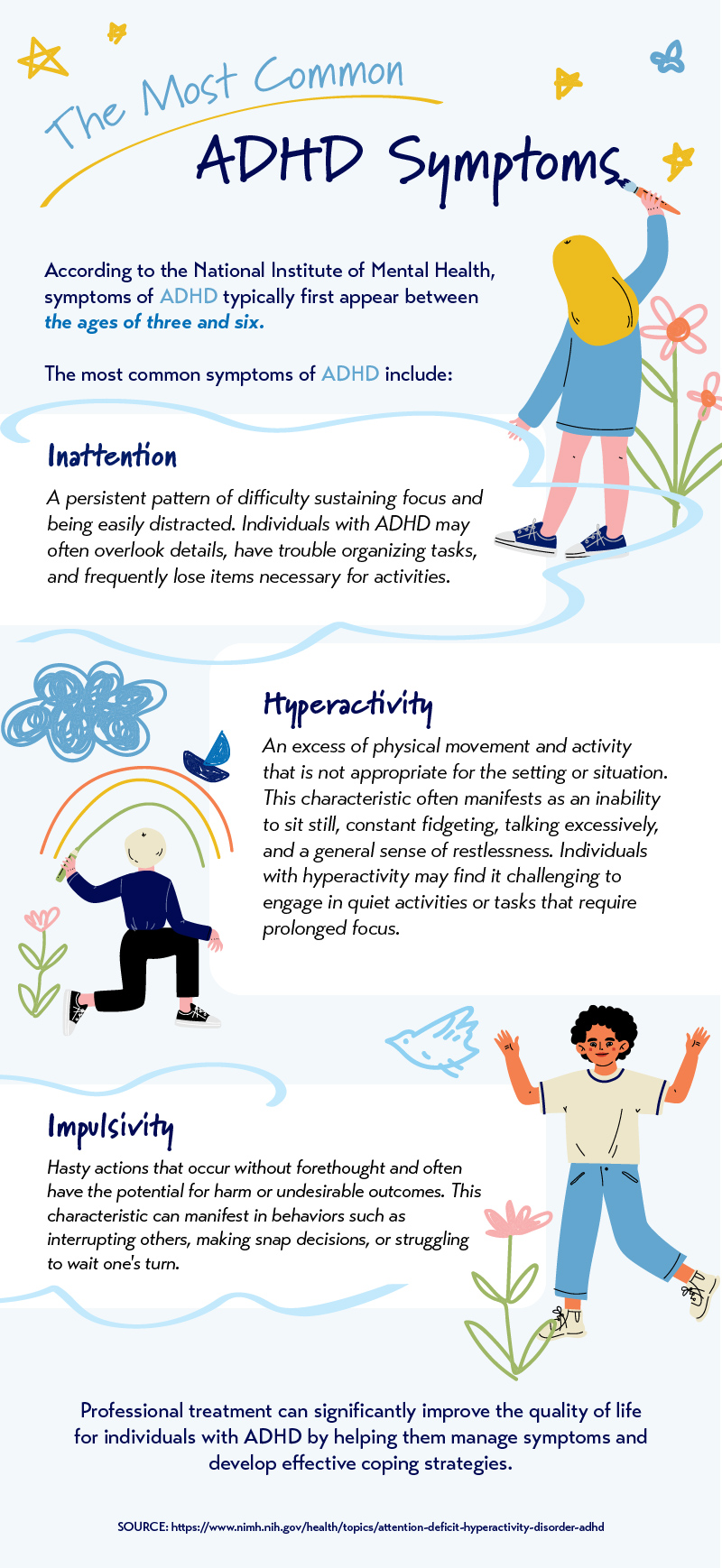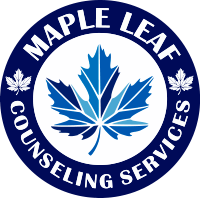
ADHD is common in both children and adults. It is characterized by symptoms of inattentiveness, hyperactivity, and impulsivity. While there is no known cure for ADHD, it can be effectively managed and treated through a combination of therapy, medication, and lifestyle changes.
Therapy and counseling are critical aspects of ADHD treatment because they provide individuals with strategies to manage their symptoms and improve their daily functioning. These interventions help patients develop organization and time-management skills, enhance interpersonal relationships, and boost self-esteem. Combined with medication, counseling can significantly improve the quality of life for those living with ADHD.
To access support for ADHD, contact Maple Leaf Counseling today. Call 989.220.3060 or connect with us online for information about our mental health treatment services in Michigan.
Understanding ADHD
Attention-deficit/hyperactivity disorder (ADHD) is a neurodevelopmental condition that affects both children and adults. It is characterized by a combination of symptoms, including inattention, hyperactivity, and impulsivity. ADHD can have a significant impact on a person’s daily life, making it difficult for them to focus, control their behavior, and manage their emotions.
Some of the common symptoms of ADHD include:
- Difficulty paying attention to details and following instructions
- Easily distracted and forgetful
- Fidgeting, squirming, or restlessness
- Constantly on the go or talking excessively
- Difficulty waiting for their turn and interrupting others
Aside from these core symptoms, individuals with ADHD may also experience difficulties in organization, time management, and emotional regulation. These challenges can affect their performance in school or at work, as well as their relationships with others.
For children with ADHD, symptoms usually manifest before the age of 12 and can continue into adulthood. However, it is important to note that ADHD does not always present itself in the same way for everyone. Some individuals may struggle more with inattention, while others may have more difficulty with hyperactivity and impulsivity.
The impact of ADHD can also extend beyond an individual’s personal life. It can affect their ability to maintain friendships, as well as cause strain in family relationships. In school or work settings, individuals with ADHD may struggle to keep up with tasks and meet deadlines, leading to feelings of frustration and low self-esteem.
Lesser-Known and Recognized Symptoms of ADHD
ADHD is often associated with symptoms like inattention, hyperactivity, and impulsiveness. However, there are several lesser-known symptoms that can have a significant impact on daily life. Recognizing these can help in seeking appropriate support and managing the condition more effectively. Here are some lesser-known symptoms of ADHD:
- Time blindness – Difficulty in perceiving the passage of time, leading to challenges in meeting deadlines and managing schedules.
- Emotional dysregulation – Struggling to manage emotions, such as frequent mood swings, low frustration tolerance, and intense emotional responses to minor provocations.
- Hyperfocus – Extreme focus on specific tasks or interests to the exclusion of everything else, which can result in neglecting other important responsibilities.
- Executive functioning deficits – Issues with planning, organizing, and completing tasks. This may manifest as chronic procrastination, forgetfulness, or difficulty following through with complex instructions.
- Social challenges – Difficulty interpreting social cues, maintaining conversations, and sustaining relationships, which can often be misinterpreted as rudeness or disinterest.
- Restlessness – A persistent feeling of physical restlessness, even when attempting to relax, which can lead to habitual fidgeting or an inability to stay seated for long periods.
- Sleep problems – Challenges with initiating and maintaining sleep, such as delayed sleep phase syndrome or restless legs syndrome.
Understanding these symptoms can provide a more comprehensive view of ADHD and foster empathy and support for those navigating this condition.
Why Early Intervention for ADHD Is So Important
Early intervention for ADHD is crucial for a child’s development and overall well-being. When diagnosed and treated early, children with ADHD can receive tailored educational support, behavioral therapy, and, if necessary, appropriate medication. These interventions can help the child develop effective coping strategies, improve their academic performance, and build positive relationships with peers and family members. Early intervention can also minimize the risk of secondary issues such as low self-esteem, anxiety, or depression, which often arise from unmanaged ADHD symptoms.
However, getting help later in life is also beneficial and important. Adults who receive an ADHD diagnosis can gain a better understanding of their behaviors and life patterns, which can be extremely enlightening and empowering. Treatment options such as cognitive-behavioral therapy, coaching, and medication management can help adults develop new skills to manage their symptoms. This can lead to improved career performance, stronger interpersonal relationships, and an overall enhanced quality of life. Additionally, recognizing and treating ADHD in adulthood can prevent the exacerbation of coexisting conditions like anxiety or depression, fostering a more balanced and fulfilling life.
Effective ADHD treatment should be comprehensive and individualized, addressing both symptoms and the overall well-being of the patient. It typically combines medication, such as stimulants or non-stimulants, with behavioral therapy to help manage symptoms like inattention, hyperactivity, and impulsivity. Additionally, incorporating lifestyle adjustments, including regular exercise, a balanced diet, and structured routines, can significantly improve daily functioning. Ongoing support from healthcare providers, educators, and family members is crucial to ensure that treatment remains effective and adaptable to the patient’s evolving needs.

About ADHD Treatment at Maple Leaf Counseling
At Maple Leaf Counseling, we understand the challenges that come with living with ADHD. We offer comprehensive treatment options in Michigan to help individuals and families manage the symptoms of ADHD and improve their overall quality of life.
Here is what can be expected from our ADHD treatment program:
- Specialized treatment plans – Our team of experienced professionals creates personalized treatment plans for each individual based on their unique needs and challenges. This tailored approach ensures that each person receives the most effective treatment possible.
- Evidence-based therapies – Our program utilizes evidence-based therapies to help individuals develop coping strategies and improve their executive functioning skills. These therapies have been proven to be effective in managing ADHD symptoms.
- Medication management – For individuals who require medication, our team works closely with them to find the right medication and dosage to effectively manage their symptoms. We also monitor and adjust medications as needed.
- Family support – ADHD affects not only the individual diagnosed but also their family members. Our program offers support and education for families on how to best support their loved one with ADHD.
- Educational support – Children with ADHD may struggle in school due to their symptoms. Our program provides educational support, such as academic coaching and tutoring, to help children excel in their studies.
- Behavioral interventions – ADHD can affect behavior and social skills, making it challenging for individuals to form relationships or navigate social situations. Our program includes behavioral interventions to help individuals develop social skills and improve their relationships.
- Comprehensive care – Our program takes a multidisciplinary approach, incorporating therapy, medication management, and family support to provide comprehensive care for individuals with ADHD. This holistic approach addresses all aspects of the condition and ensures that each individual receives the necessary support.
Living with ADHD can be challenging, but we are here to help. With specialized treatment plans, evidence-based therapies, and comprehensive care, individuals can learn to manage their symptoms and thrive at Maple Leaf Counseling.
We believe that with the right support, individuals with ADHD can reach their full potential. Whether you have recently been diagnosed with ADHD or have been living with it for years, our team is here to support you on your journey.
The Benefits of Seeking Professional Help for ADHD
Seeking professional help for ADHD is crucial for managing the symptoms effectively and improving quality of life. While it may seem daunting to seek help, there are numerous benefits that come with seeking professional guidance and support.
Key benefits of professional intervention include:
- Accurate diagnosis – Professionals can provide a thorough evaluation to ensure an accurate diagnosis, distinguishing ADHD from other conditions that exhibit similar symptoms.
- Personalized treatment – A healthcare provider can tailor treatment to individual needs, considering both medical and non-medical strategies.
- Skill development – Therapy can help individuals develop coping strategies, organizational skills, and time management techniques.
- Improved self-esteem – Effective management of ADHD symptoms often leads to increased confidence and a more positive self-image.
- Monitoring progress – Regular check-ins with a professional allow for monitoring progress and adjustments to treatment plans as needed.
Professional help provides a structured and comprehensive approach to managing ADHD, leading to more effective symptom control and a better overall quality of life. Additionally, seeking help can also reduce the burden on loved ones and improve relationships by providing a better understanding of the condition.
Seeking professional help is not a sign of weakness but a proactive step toward managing ADHD and living a fulfilling life. By taking this step, individuals with ADHD can gain the necessary tools to thrive in both their personal and professional lives.
Find Support for ADHD At Maple Leaf Counseling — Contact Us Today
Despite the challenges, it is important to remember that individuals with ADHD also have unique strengths and abilities. With proper support and accommodations, they can learn to manage their symptoms and thrive in various aspects of their lives. We can help. Call 989.220.3060 or contact Maple Leaf Counseling online to access support and treatment for ADHD in Michigan. We are proud to provide ADHD treatment services in Bay City, Saginaw, Flint, MI & surrounding areas.





